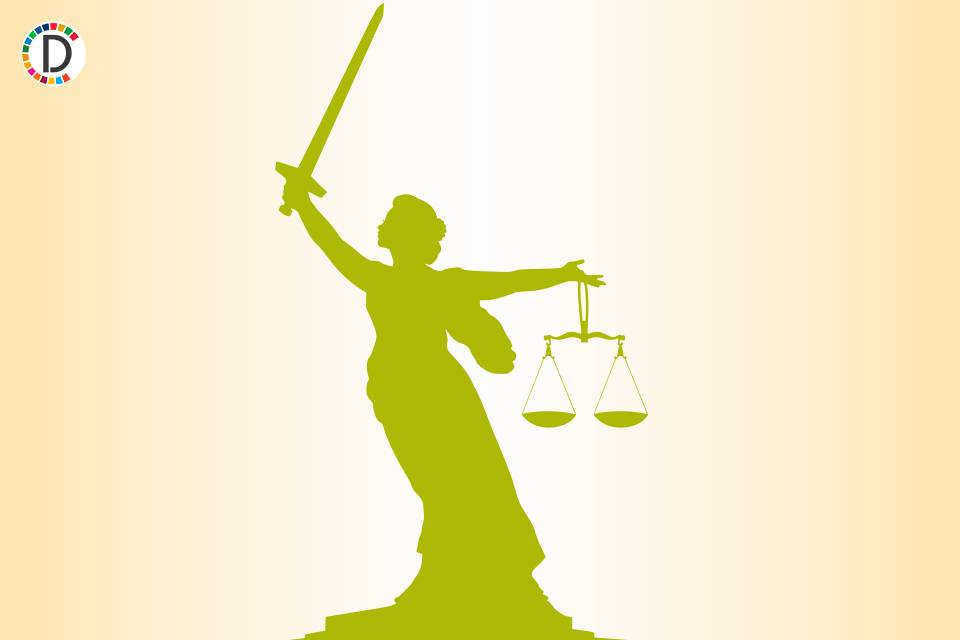Nepal's Supreme Court starts hearing 30 writ petitions against House dissolution
A Constitutional Bench of Nepals Supreme Court on Friday heard 30 writ petitions against the dissolution of the lower house of Parliament and fixed Sunday as the next date of hearing, according to media reports.Chief Justice Cholendra Shumsher Rana formed the bench earlier in the day with justices Deepak Kumar Karki, Dr Ananda Mohan Bhattarai, Tej Bahadur KC and Bam Kumar Shrestha alongside him, the Kathmandu Post newspaper reported.There is a provision of a five-member Constitutional Bench to settle disputes over constitutional matters.

- Country:
- Nepal
A Constitutional Bench of Nepal's Supreme Court on Friday heard 30 writ petitions against the dissolution of the lower house of Parliament and fixed Sunday as the next date of hearing, according to media reports.
Chief Justice Cholendra Shumsher Rana formed the bench earlier in the day with justices Deepak Kumar Karki, Dr Ananda Mohan Bhattarai, Tej Bahadur KC and Bam Kumar Shrestha alongside him, the Kathmandu Post newspaper reported.
There is a provision of a five-member Constitutional Bench to settle disputes over constitutional matters. Currently, there are 13 senior justices, besides chief justice, in the Supreme Court.
''The hearing took place till 3:00 pm on Friday afternoon and it will continue on coming Sunday (May 30),'' Devendra Dhakal, Information Officer at the Supreme Court, was quoted as saying by the official The Rising Nepal newspaper.
As many as 30 writ petitions have been registered at the apex court against President Bidya Devi Bhandari's May 22 move to dissolve the lower house of Parliament on the advice of Prime Minister K P Sharma Oli, who is heading a minority government.
The initial hearing on 19 of such petitions was conducted by the CJ Rana-led bench on Thursday. The single bench, however, forwarded the writ petitions to the Constitutional Bench for further hearing.
Some of the petitioners had demanded an interim against the dissolution and calling of the House meeting to present the national budget. Rana, however, refused.
According to the constitutional provision, the government must present the federal budget at the federal Parliament by May 29.
Since there is no Parliament, the government is planning to bring the budget through an ordinance.
President Bhandari dissolved the 275-member House of Representatives on Saturday for the second time in five months and announced snap elections on November 12 and November 19 on the advice of Prime Minister Oli.
She rejected the bids of both Prime Minister Oli and the Opposition alliance's claims to form a government. Oli and Nepali Congress President Sher Bahadur Deuba had staked separate claims to the premiership, saying the "claims were insufficient." Meanwhile, Oli on Friday urged all political parties to form an all-party government and hold fresh elections, as he tried to justify the controversial dissolution of the House of Representatives twice by the President, saying a ''functionless'' Parliament turned out to be the main source of instability in the country.
"Going for an election can never be a regressive act," Oli said in a televised address to the nation.
Nepal's Opposition alliance on Monday filed a writ petition in the Supreme Court demanding restoration of the House of Representatives and appointment of Deuba as the Prime Minister. Others had also filed petitions against the dissolution of the House of Representatives.
Earlier on December 20, the President had dissolved the Parliament and called snap polls on April 30 and May 10. However, two months later, the Rana-led Constitutional Bench on February 23 overturned the decision and reinstated the House.
Constitutional experts have criticised Oli and Bhandari for their complicity in trampling upon the Constitution.
A joint statement issued by four former chief justices Min Bahadur Rayamajhi, Anup Raj Sharma, Kalyan Shrestha and Sushila Karki on Friday said the Articles that have been cited for the dissolution of the House don't empower the prime minister to do so.
"Article 76 of Nepal's constitution does not have any provision for dissolving the House unless for the purpose of forming a council of ministers but the House of Representatives is found to have been dissolved by the article that cannot be attracted to the act," the former chief justices stated.
Nepal plunged into a political crisis on December 20 last year after President Bhandari dissolved the House and announced fresh elections on April 30 and May 10 at the recommendation of Prime Minister Oli, amidst a tussle for power within the ruling Nepal Communist Party (NCP).
Oli's move to dissolve the House sparked protests from a large section of the NCP led by his rival Pushpa Kamal Dahal 'Prachanda'.
In February, the apex court reinstated the dissolved House, in a setback to Oli who was preparing for snap polls.
(This story has not been edited by Devdiscourse staff and is auto-generated from a syndicated feed.)










